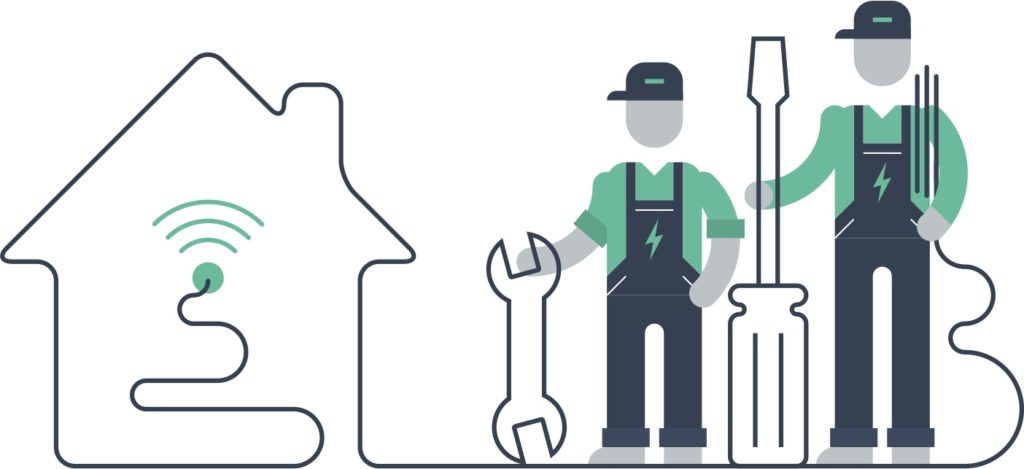With connectivity becoming more and more necessary to run a business, an internet outage can be damaging to your profits and reputation. Cloud services are not without flaws but neither is any technology. A wise man once told me, “If technology worked 100% of the time, I wouldn’t have a job.”
Here is a list of a few things you should do in the event of an internet outage and a few things you should do to prevent an internet outage from occurring. Being proactive is at the core of the CloudOgre Network Management philosophy, you can visit our website here to learn more.
- Basic redundancy is fundamental – every business should have a back-up plan in case an internet outage occurs. Even businesses running on cable should have a cellular back up if possible. Companies with an in house IT shop should certainly be looking into more complex diversity. If you build it right the first time, you’ll have less issues down the road.
- Keep open lines of communication – Who are the key Points of Contacts within your company that need to immediately be looped in, should the proverbial you know what hits the fan? These folks should be in contact with other key individuals and information. For example, building management should be in touch with both facilities and IT to manage any scheduled maintenance or work within the facility. Key administration personnel, we call them The Glue, should be in direct contact with senior IT leadership and customers.
- Power cycle network gear – As you make the call to the carrier to report your internet outage, also unplug your modem. Let it sit for thirty seconds and plug it back in. You’ll need to do that, in sequence, to any router and firewall as well. This process is usually automated in larger enterprise environments and it saves time just to make sure its not the CPE (customer premise equipment) before you open a ticket with the carrier.
- Open up a ticket with the carrier – You’ll want to immediately open up a trouble ticket with your carrier and take note of the number. You should request an email response and wait until you get off of the call to receive it. At times of major outage, you’ll have trouble getting through. Everybody else will be calling as well. It’s tough to get answers as the crisis is happening since their teams are focused on resolution rather than reporting. That said, you’ll want to make sure they’re working on it and you’re getting updates.
- Post internet outage – This goes for any outage really, not just an internet outage. You’ll want to request a RFO or Reason For Outage, as well as, request a billing credit by opening up a billing ticket. Nobody that we know is giving away money easily so you’ll want to stay on them. Going back to point #2, this is where IT and Accounting need to be in lock step. Shameless plug, check our page on Expense Management!
- Social Media – Internet Service Providers and other Cloud Providers are all over social media promoting their brand. Outages are bad for brand equity and its clear to see that many times you’ll get a faster response going the social media route since those messages flow through a different department. You’ll also want to check the internet outage blogs like DownDetector where IT professionals, business owners, and even residents provide real time updates on network status. If your outage isn’t on one of these blogs, you’re either REALLY early to the party or its isolated to your site.
- Use a network monitoring service – Nowadays, its less expensive than ever to monitor for internet outages. You can use online sites to input your IP address and ping your network every few seconds to monitor your uptime. This also helps recover monies owed by carriers for internet outages outside of their guaranteed SLA. Pingdom, Solarwinds, and Intermapper are popular network monitoring tools but it can be as simple as a Raspberry Pi dedicated to network monitoring if the budget is ultra tight or you just want to write some code.
It certainly sounds complicated. The complexity increases exponentially as businesses take on new end users (that’s IT lingo for hiring more people). This is a time consuming process but its where we add value, leaving your IT and facilities team to manage. Feel free to contact us for more info on how we can help.
The one thing that we’ve found to be most helpful is communication, whether that’s interdepartmental, with vendors, consumers, or with end-users… good communication makes the situation easier to manage, resolve, and work through productively.

